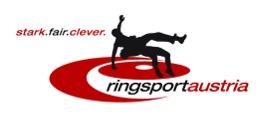Austria
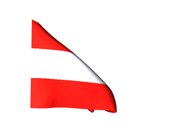
Austria (German: Österreich)), officially the Republic of Austria is a federal republic and a landlocked
country of roughly 8.47 million people in East Central Europe. It is bordered
by the Czech Republic
and Germany to the north, Hungary and Slovakia
to the east, Slovenia and Italy to the south, and Switzerland and Liechtenstein to the west. The territory of Austria covers 83,855 square kilometres
(32,377 sq mi) and has a temperate and alpine climate. Austria's terrain is highly mountainous due to
the presence of the Alps; only 32% of the
country is below 500 metres (1,640 ft), and its highest point is 3,798 metres
(12,461 ft). The majority of the population speak local Bavarian dialects of German
as their native language,and German in its standard form is the country's
official language. Other local official languages are Hungarian, Burgenland
Croatian, and Slovene.
Vienna (Wien) is the capital and largest city of Austria. Vienna is Austria's
primary city, with a population of about 1.757 million[(2.4 million within the metropolitan area.[
Tourism forms an important part of Austria's
economy, accounting for almost 9% of the Austrian gross domestic product. As of
2007, the total number of tourist overnight stays is roughly the same for
summer and winter season, with peaks in February and July/August.
Vienna attracts a major part of tourists, both
in summer and winter. Salzburg receives about a fifth of tourist overnight stays
compared to Vienna,
which ranks it 2nd in the summer season. In the winter season, a number of winter
sport resorts in western Austria
overtake Salzburg in the number of tourist
overnight stays: Sölden, Saalbach-Hinterglemm, Ischgl, Sankt Anton am Arlberg, and Obertauern.
Wrestling in Austria
In the German language Wrestling is called “Ringen”
The national Wrestling Federacion is
called ÖRSV
(österreichischer Ringsportvervand) in which the divisions sumo wrestling (since January 1999) and grappling (since January.2009)
are_integrated.
Before 1952, the Federation united
two sports (wrestling and weightlifting).
But 1952 Austrian Amateur Wrestling
Federation (ÖARV) was founded. It is divided into seven regional associations with about 30 clubs. In 2007 the
association was renamed ÖRSV
(österreichischer Ringsportvervand). Since there was the association provide
89 Olympians.
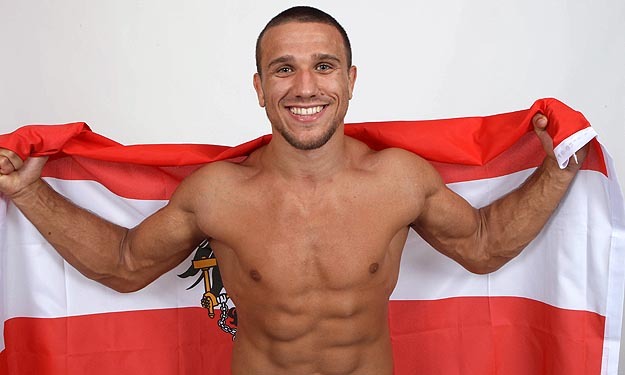 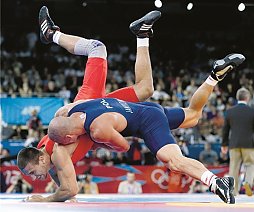
The Olympian Amer Hrustanovic from AC Wals.
International
Situation
The
Austrian Wrestling Association has too few clubs and members to compete internationally with the great wrestling nations. But within its means, Austria
tries to make a good job to train the talented wrestlers. The
biggest international successes could achieve Nikola Hartmann
from Gotzis. In the years 1993-2000 she was five-time
World and European Champion.
Since the
eighties, enter the following athletes noteworthy positions on the world scene.
Franz Pitschmann, Innsbruck (2. European Champ 1986, 90 Kg – Greco); Alexander
Neumüller, Salzburg (World 6. 1987, 130 Kg Greco); Anton Marchl, Salzburg (6.
Olympic 1992, 74Kg Greco); Franz Marx, Innsbruck (World 5. 1993, 90 Kg
Greco); Radovan Valach, Salzburg 4. (European,90Kg Freestyle)
In
female Wrestling, two girls from Tyrol Marina Gastl and
Martina Kuenz could win a lot of international
medals in the last years. Daniel Gastl won at the Junior World
Championships 2013 in Sofia
a sensational silvermedal. Amer Hrustanovic from Salzburg is currently the only Austrian world-class among men. At the Olympic Games in London, he finished
10th Rank. At the European Championships 2014 in Vantaa Finland,
Hrustanovic could win a bronce medal for Austria.
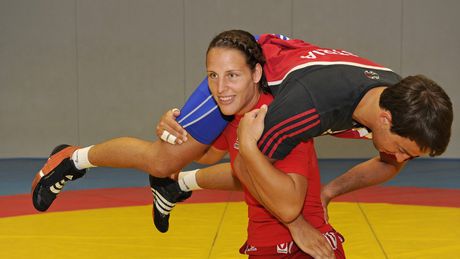 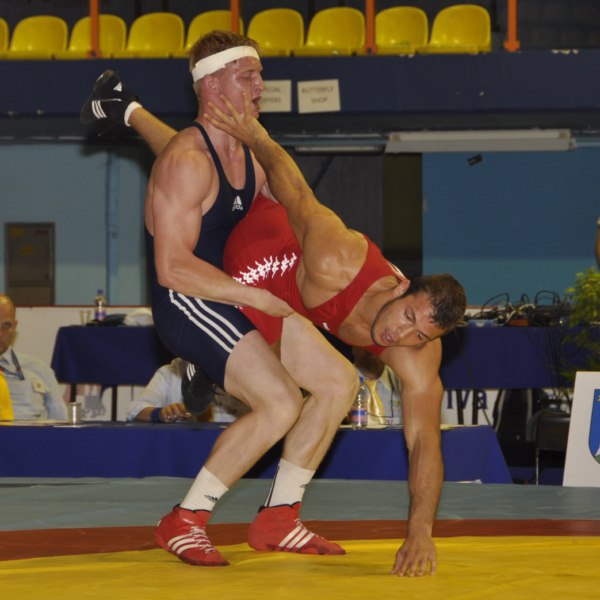
One family: Marina Gastl
won a lot of international Medals and her Brother Daniel won a silver
medals at World Junior Championships 2013 (96Kg - greco).
National Situation
Since 2009, Heinz Ostermann had been
commited one of the most successful coaches Worldwide (over 100 medals with the
German national team) to structure Wrestling more professionally in Austria.
Dr. Bruno Hartmann, (FILA-Coach) is also very
experienced. Since 2013, the former German
women's national coach Jörg Helmdach, is now Trainer of the Austrian
National Team.
Mag. Peter
Kosmata is responsible to make wrestlin mor popular in the austrian
schools.
The Austrian Wrestling stronghold is undoubtedly Vorarlberg.
Here are the top clubs KSV Götzis, KSK Klaus and AC Hörbranz
(and several smaller
clubs) are located. The Trainingscenter “Ringsportzentrum West” offers the best training conditions.
But the absolute top club is the AC Wals. This club won the most
Bundesliga titles in Austria. Wals
is a suburb of Salzburg close to the
airport. For women, the Tyrolean club RSC
Inzing currently dominates. The remaining clubs scattered
over the whole of Austria. Only in the province of Carinthia
(Kärnten), there is no wrestling club.
Team figths
Wrestling will be held in Austria as a team sport and its called Bundesliga (like Germany). Two teams figth against each other. Each team is usually 14 starters
on (one for each weight
class and style). Half of the competions are fought in freestyle and in Greco-Roman
wrestling. The scoring points of the
individual won rounds will be
added. Exception of touche, technical superiority, surrender
and disqualification of a wrestler. These are
ranked with 4-0 for the winners team.
In Austria
there is a system of leagues.
The highest league is the first Bundesliga. This
league is subdivided in two groups. The two best-placed
teams of the group qualify for the
finals. This is the all-in System
held here and
the title of
the Austrian team champion. To the finals
usually come more
than 1000 spectators. In the Austrian Bundesliga, some foreign athletes (lured by fight premiums) have contracts to fight. Below the
first Bundesliga is the second Bundesliga, which
is divided into two groups (East and
West). The belowest level is the Nationalliga with three groups (North, Central and South).
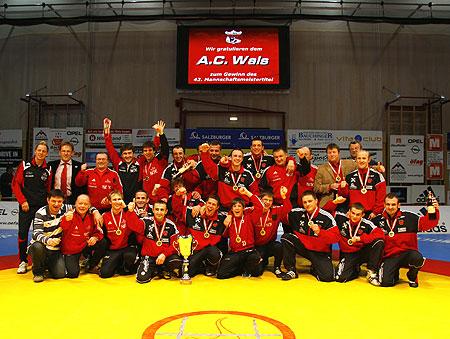
The Team from AC Wals dominates the Austrian Bundesliga since decades.
Ranking Bundesliga 2016
|
1.
|
KSK Klaus
|
|
2.
|
A.C. Wals
|
|
3.
|
RSC Inzing
|
|
4.
|
KSV Götzis
|
|
5.
|
KG Wien/Burgenland
|
|
6.
|
URC Wolfurt
|
|
7.
|
A.C. Wals II
|
Austrian Bundesliga History since 2009
2009
1. AC Wals
2. KSV Götzis 3. AC Hörbranz
2010
1. AC Wals
2. KSV Götzis 3. AC Hörbranz
2011
1. AC Wals
2. KSV Götzis 3. KSK Klaus
2012
1. AC Wals
2. KSV Götzis 3. KSK Klaus
2013
1. AC Wals 2. KSK Klaus 3. KSV Götzis
2014
1. AC Wals
2. KSK Klaus 3. KSV
Götzis
2015
1. AC Wals
2. KSV Götzis 3. RSC Inzing
2016
1. KSK Klaus 2.
AC Wals 3. RSC Inzing
Federacion
President Mag:. Thomas Reichenauer (Vienna).
Vice President: Josef
Schnöll (Salzburg)
Sportdirektor: Heinz
Ostermann
National Coaches:
Mag. Peter Kosmata, Jeno Bodi (Greco),
Lubos Cikel (Freestyle), and Jörg Helmdach (Female).
Österr.
Rinsportverband (ÖRSV)
Oberst-Lepperdinger-Str.
21
LSO
/ Stadion Klessheim
5071
Wals
Doris Hagn, Sekretariat
E-Mail: office@ringsport.at
Telefon: +43 (662) 243171
Telefax: +43 (662) 243171-15
Homepage: http://www.ringkampf.at/
10 / 2017
|
